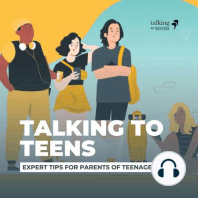22 min listen

Ep 88: A Conversation About Race
Ep 88: A Conversation About Race
ratings:
Length:
53 minutes
Released:
Jun 4, 2020
Format:
Podcast episode
Description
Click for full show notes, exercises, and parenting scripts from this episodeRight now, America is once again in the midst of having one of the most important—and most complicated—conversations: the conversation about race. With the death of George Floyd at the hands of the Minneapolis police, reactions to racial disparity in America have exploded in the form of peaceful protests, community organization, and social media activism, as well as dramatic incidents of looting and rioting. No matter where we turn, we’re face-to-face with a set of daunting, hard-to-answer questions that have haunted America through all its history. For parents, the conversation surrounding race holds a special significance in the home. Black, Latinx, Asian, Native American, and other non-White homes want to make sure their children are prepared to face race-related challenges that could arise over the course of their adolescence, and certainly, all parents want their children to be unbiased and empathetic toward others, regardless of skin color. However, the language surrounding racial injustice is often packed with loaded terminology and uncomfortable historical facts, making it intimidating for many parents to openly address race with their children. But to ensure the next generation of adults is prepared to continue fighting for racial equality, it’s absolutely essential for all parents to know how and why to talk about race openly and honestly, no matter how difficult it seems. To explore how race impacts teenagers on a daily basis and what parents can do to foster open dialogues about race in the home, I spoke with the esteemed Dr. Beverly Daniel Tatum. Dr. Tatum is the former president of the historically Black college Spelman University, a recipient of the American Psychological Association’s top honor, and author of the renowned book Why Are All the Black Kids Sitting Together in the Cafeteria?: And Other Conversations About Race. As one of our country’s foremost scholars on race and a teacher of race-related subjects for over thirty years, it’s no surprise Dr. Tatum offers some incredible takeaways for listeners in this week’s episode. When it comes to talking about race, Dr. Tatum doesn’t shy away from the fact that all people need to be engaged, not just people of color. To illustrate her point, she compares racism to smog; if not everybody is actively involved in cutting emissions, our air will never be clean. It’s the same, she claims, for racism. Unless everyone is involved in fighting for racial equality, racism will always be a problem. And that fight starts with addressing the reality of racism in America. After all, you can’t fix a problem unless you’ve identified it first! This idea directly opposes the “colorblind” approach to race, where people pretend not to “see” skin color. In this week’s interview, Dr. Tatum not only explains why this mindset is harmful, but she gives great advice on what parents can do to embrace, accept, celebrate, and navigate the implications of REC—racial-ethnic-cultural—identities in the home—even White families. In fact, Dr. Tatum addresses how White families can act as firm and steadfast allies, and she even offers an alternate term for White privilege to help clarify its definition: White immunity. In the course of our conversation, Dr. Tatum also discusses the changes in policy, psychology, population, and polarization (the “Four Ps”) that have impacted the discussion surrounding race—valuable information to parents keen to learn more about the current state of racism in America. On top of these great insights, Dr. Tatum and I broach the topics of:
Addressing race and diversity in education
How race and brain development go hand-in-hand for teens
Why the history of racism is so important
Historically Black Colleges and Universities (HBCUs)
The concept of “White guilt” and what you can do to overcome it
With such a rich and critical topic at hand, and considering the current political climate,
Addressing race and diversity in education
How race and brain development go hand-in-hand for teens
Why the history of racism is so important
Historically Black Colleges and Universities (HBCUs)
The concept of “White guilt” and what you can do to overcome it
With such a rich and critical topic at hand, and considering the current political climate,
Released:
Jun 4, 2020
Format:
Podcast episode
Titles in the series (100)
Ep 21: Teaching Your Teen to Be Happy: Tim Bono, author of When Likes Aren't Enough, reveals some strategies parents can use to help teens cope with setbacks and maintain a positive outlook in the face of obstacles and failure. Ultimately, the tools discussed in this interview are things that by Talking To Teens: Expert Tips for Parenting Teenagers